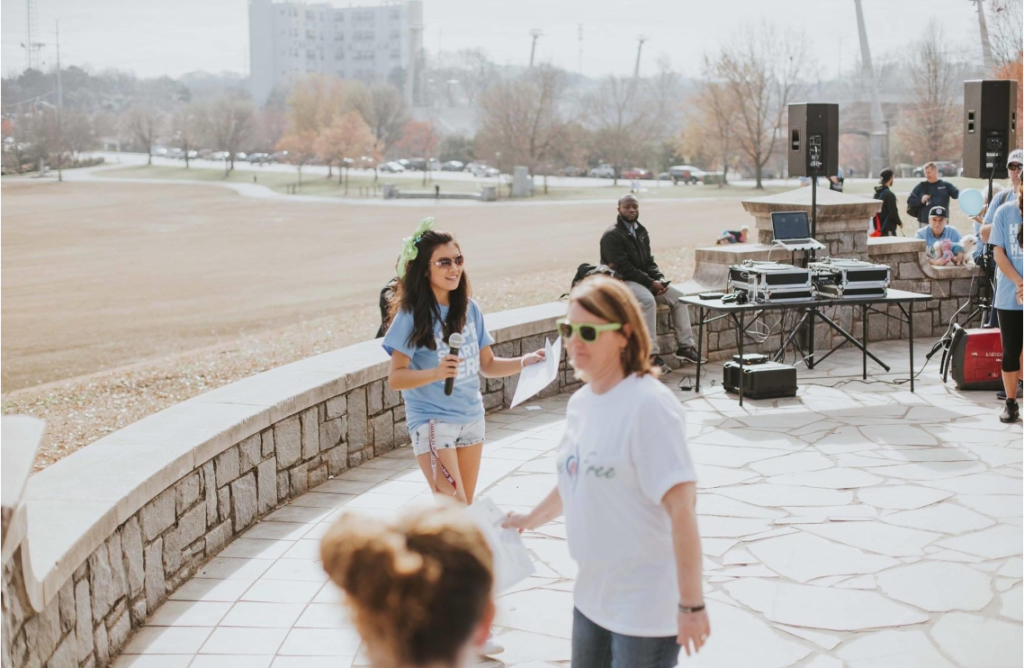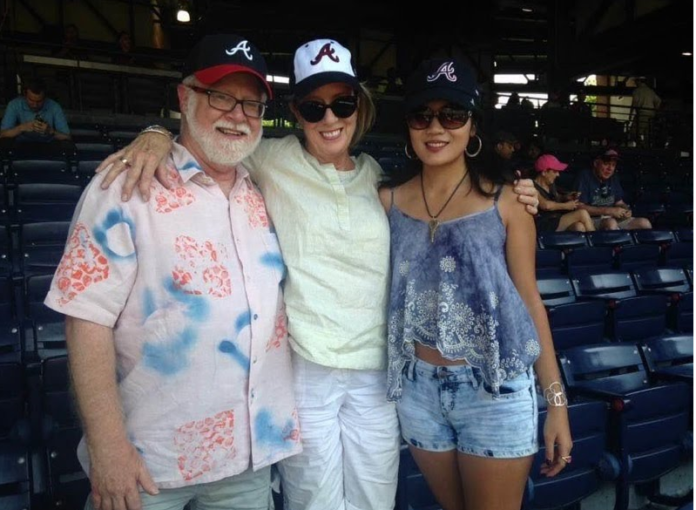By Amy–Xiaoshi DePaola, AsAmNews Intern
A young girl contacted Lyla Mills. She was being ostracized by her friends at school.
“What did I do wrong?” she asked.
The girl, a Chinese adoptee, wasn’t the victim of a rumor or schoolyard politics. It wasn’t even her fault. It was because of the growing trend of coronavirus-based racism against Chinese Americans.
In response, Mills, an international Chinese adoptee herself, decided to turn hate into help by starting a mentor-mentee match program for international Chinese adoptees.
“I thought it was the perfect opportunity to do something I wish I had when I was younger,” she said. “I absolutely would have loved to have something like this, to talk about adoption, but also to just have a sounding board. Someone who cares, someone there for you that has a similar background as you, but still has their own unique perspective.”
Mills began the program weeks ago, and so far, has had 14 mentors — including herself — and 20 mentees sign up. The mentors had their first Zoom meeting on Monday, and there’s already a few paired with mentees.
“I did get to match one or two pairs based on province and loving dancing,” Mills said.
Driven by the rash of coronavirus-centered xenophobia — refusing to serve Asian customers in stores and hotels, shouted or written death threats, multiple hate crimes, and outright physical attacks — Mills noticed a “level of fear” that resulted in parents and adoptees alike sharing their own stories of harassment and being left out, being scapegoated because of their Asian faces.
Even elected officials have been adding to the stigma, referring to the pandemic as “the Chinese virus.”
“If they keep using these terms, the kids are going to pick it up,” said Tony Du, worried for his son, in The New York Times. “They are going to call my 8-year-old son a Chinese virus. It’s serious.”
The young girl Mills talked to is not alone in her story. Not only is this happening in businesses and schools, it’s also happening in workplaces, including Mills’, where someone had asked why Mills’ employers “‘still have Asians here working?,’” along a customer using the derogatory term “Orientals.”
The coronavirus-centered vitriol is a shock to Mills.
“I’ve never experienced anything like that until the coronavirus,” she said. “When I was in law school, I spent three years interning in the district attorney’s office, seeing bunches of sad cases. We had real crimes, yet I wasn’t afraid to go to work.
“I can say when I started hearing about the rise of subtle racist and outright racist acts towards Asians, I did feel afraid,” Mills continued. “But I was lucky; I had an absolutely amazing support system.”
For fellow adoptees, she hopes to provide that support system.
Mills’ story

Mills was adopted in 1996. She was just 3 months old when she moved from the Anhui province to Atlanta, Georgia.
An only child, she describes her parents as “the world to her,” and faced the familiar question all adoptees hear: “Are they your real parents?”
“My mom fought a few racism battles for me growing up at school,” Mills said. “She had to talk to parents/principals.”
Even now, she still gets “Are you all together?”
“[My mom] grits her teeth and puts her hand on my shoulder and goes, ‘She’s my daughter!’” Mills said.
The personal questions still bother Mills, but now, she’s learned to talk about her past openly and try to educate people who don’t understand adoption through Facebook.
Mills eventually moved to Alabama for undergrad and did a year of law school at Mercer in Macon, Georgia. She began mentoring officially two years ago after she coordinated the Atlanta, Georgia National Eating Disorders Awareness Walk, where they raised over $16,000. It inspired her to help people through public speaking, particularly those who have eating disorders.
But adoption holds a special place in her heart.
“I could’ve definitely used someone older who knew the abandonment issues I struggled with,” Mills said. “Who knew what it felt like to get asked the tough questions, who knew about being the only Asian in class — or feeling bad when World War Two was talked about because, even though I was Chinese, I still got side-eyes.”
The application
Each mentor-mentee application is emailed to Mills, with a list of interests and other things that may connect the adoptees, such as their provinces and ages. She also asks them to include contact information and their adoption story.
So far, the program is still in the works, with Mills mostly running the show, along with a parent volunteer. She double-checks mentors by having them friend her on Facebook and giving her their phone numbers. The mentors are then added to a group for weekly Zoom calls.
When the coronavirus pandemic is over, Mills hopes to have physical meet-ups and eventually expand to other Asian and domestic adoptees.
“But I really, really want to make sure it’s all done right,” she said. “[The match program] stemmed from the racism I experienced, so I want to make sure the Chinese community is taken care of.”
Mills invites those who wish to be mentors or mentees to contact her through the Adopted, Chosen, and Loved Facebook page.
AsAmNews has Asian America in its heart. We’re an all-volunteer effort of dedicated staff and interns. Check out our new Instagram account. Go to our Twitter feed and Facebook page for more content. Please consider interning, joining our staff or submitting a story.




RE: It’s a match: International Chinese adoptees bond amid coronavirus racism: It is sad that so many of these adoptees on the east coast and the south did not have the same kind of exposure as those adoptees in California where there are groups for these adoptees, and therapists that have been addressing these difficult and too often painful identity crises since the 70s. That’s 50 years ago!!! So glad her pain has led her to this juncture in her life where she is also helping those like herself. She can look up many papers written on this subject from Asian American study programs and therapy clinics serving Asian Americans by Asian American professionals. For example, I myself used to conduct 10 week sessions on being Asian American in a Anglo/Euro American culture. One of the first things I taught was the different perspectives of these two cultures psychologically and socially, which were primarily based on the difference between collective vs individualism. The resulting behaviors and attitudes that are engendered, how we act in a social situation when in the white world vs. the Asian world can be wrongfully interpreted. If we interpret Asian behavior through the western perspective rather than thru the Asian cultural perspective, it could feel judgmental, or negative. And, in truth, cultural or ethnic behaviors are sometimes genetically inherited even tho we have been raised in a white family. But ultimately, it is all about our need to belong, to fit in. It is a tough one for children of color to be adopted by a white family no matter how loving and supportive their adopted family is. I wish her and all her mentees and mentors success in finding their grounding.